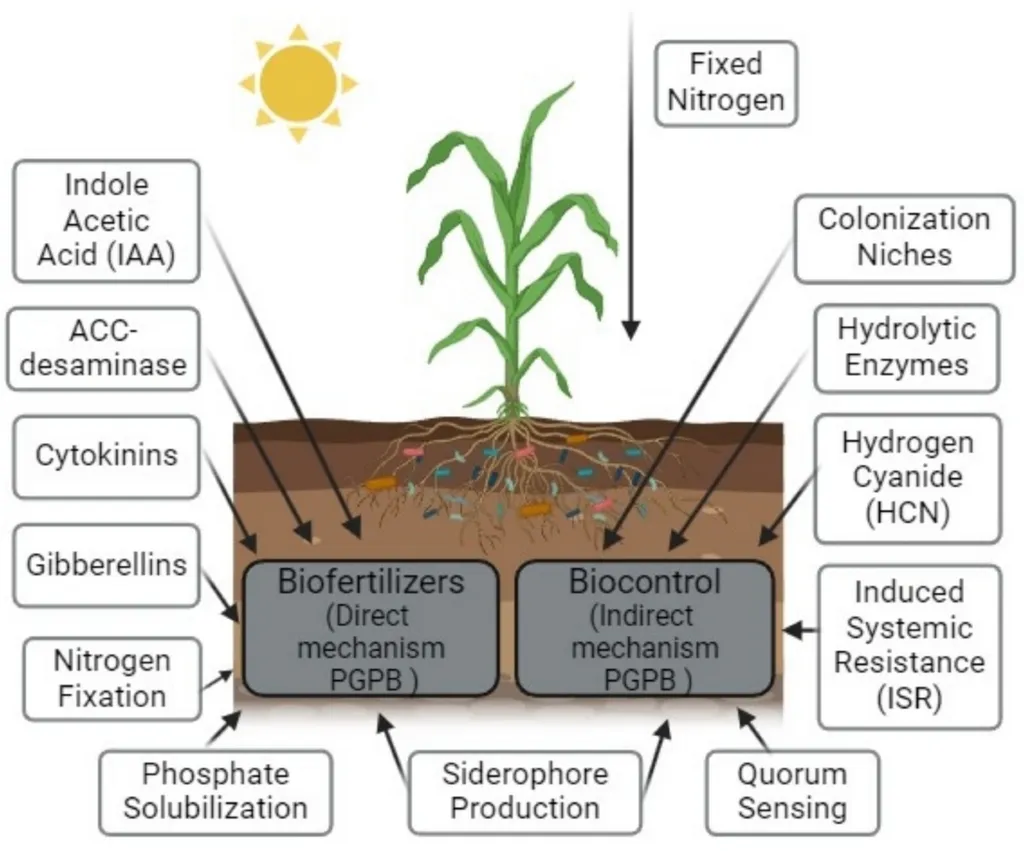In the heart of Lithuania, a team of researchers led by Shervin Hadian at the Lithuanian Research Centre for Agriculture and Forestry has uncovered a promising solution to enhance crop resilience and productivity. Their focus? A tiny, yet powerful, endophytic bacterium named Serratia sp. AR11, isolated from the Artemisia absinthium plant. This bacterium has demonstrated remarkable potential as both a biostimulant and a biocontrol agent, offering a sustainable approach to agriculture that could revolutionize the industry.
The study, published in the journal ‘Frontiers in Microbiology’ (which translates to “Frontiers in Microbiology” in English), reveals that AR11 significantly boosts pea plant growth and suppresses Fusarium-related diseases. In greenhouse experiments, AR11 inoculation led to substantial increases in shoot and root length, biomass, and chlorophyll content, even under Fusarium stress. “The results were striking,” says Hadian. “We observed a reduction in Fusarium-induced stunting by over 70%, and a 67% increase in the SPAD index, which measures chlorophyll content, under pathogen stress.”
The team’s whole-genome analysis of AR11 provided insights into the bacterium’s multifunctional capabilities. The 5.49 Mb circular genome contains genes related to nutrient metabolism, phosphate solubilization, siderophore production, and antifungal secondary metabolite biosynthesis. These genetic traits contribute to AR11’s ability to promote plant growth and suppress diseases.
One of the most compelling aspects of this research is its potential commercial impact. As the global population grows and agricultural lands face increasing pressures from climate change and pathogens, the need for sustainable, low-input agricultural solutions becomes ever more critical. AR11’s dual biostimulant and biocontrol activities make it a promising candidate for such solutions. “This bacterium could be a game-changer for farmers,” Hadian explains. “It’s a safe, natural way to enhance crop yields and protect against diseases, reducing the need for chemical fertilizers and pesticides.”
The study also highlights the importance of exploring and understanding the microbial communities within plants. Endophytic bacteria like AR11 live inside plant tissues, forming symbiotic relationships that can benefit both the plant and the bacterium. By harnessing these relationships, researchers can develop innovative strategies for sustainable agriculture.
Looking ahead, this research could pave the way for further discoveries in the field of plant-microbe interactions. As Hadian notes, “There’s a vast, untapped potential in the microbial world. By studying and understanding these interactions, we can unlock new possibilities for agriculture and contribute to a more sustainable future.”
In the meantime, the agricultural industry watches with keen interest. The promise of AR11 and similar microorganisms offers a glimpse into a future where crops are healthier, yields are higher, and the environmental impact of agriculture is significantly reduced. For now, the story of Serratia sp. AR11 serves as a testament to the power of scientific exploration and its potential to transform our world.

